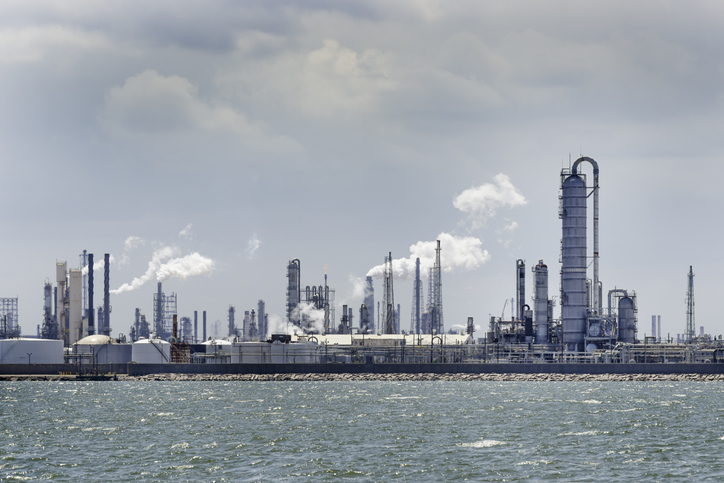
The frenzied coverage surrounding the horrific train derailment in East Palestine, Ohio, could lead many to believe such incidents are rare.
Unfortunately, that’s not at all the case.
In fact, according to a new report published in The Guardian, the United States actually experiences roughly one chemical accident every two days. Yet few incidents ever garner anywhere near the level of attention that has been focused on the Norfolk Southern derailment in recent weeks.
30 U.S. Chemical Accidents in First 7 Weeks of 2023
The Coalition to Prevent Chemical Disasters recorded more than 30 chemical accidents in the first seven weeks of 2023 alone, or roughly one every day and a half. In 2022, the Coalition counted 188, up from 177 in 2021. Some of the most recent incidents recorded by the group include:
- September 2022: A spill of caustic materials at a California recycling facility sent six people to the hospital and forced more than 300 to evacuate.
- October 2022: An explosion and fire at a petrochemical plant in Louisiana forced nearby residents to shelter in place for hours.
- November 2022: An accident at a Kansas beverage manufacturing facility sent a chemical cloud out over the town of Atchison, forcing schools to evacuate and causing more than 100 people to seek medical treatment for respiratory issues.
- December 2022: A large pipeline ruptured in northern Kansas, sending 88,000 gallons of diluted bitumen crude oil spilling onto land and into waterways. Hundreds of workers are still trying to clean up the mess, an operation that will ultimately cost around $488 million.
The 470 incidents recorded by the Coalition since its founding in April 2020 vary in severity, but all involved the accidental release of chemicals deemed to pose potential threats to human and environmental health. Although they include the East Palestine disaster and nine other train derailments, most occurred at the thousands of plants, refineries, and other industrial facilities where hazardous chemicals are stored.
“What happened in East Palestine, this is a regular occurrence for communities living adjacent to chemical plants,” Mathy Stanislaus, a former assistant administrator of the EPA’s office of land and emergency management during the Obama administration, told the Guardian. “They live in daily fear of an accident.”
Chemical Facilities Endanger Roughly 200 Million Americans
According to a recent Government Accountability Office report, nearly 12,000 facilities across the nation store “extremely hazardous chemicals in amounts that could harm people, the environment, or property if accidentally released.” Roughly 200 million Americans live near one of these plants, including many who are members of disadvantaged communities.
The Environmental Protection Agency (EPA) logged more than 1,650 chemical incidents at industrial facilities across the United States in the ten-year period between 2004 and 2013, roughly 160 a year. According to The Guardian, those incidents forced 56,000 people to evacuate, while 47,000 people were ordered to “shelter-in-place.”
Texas logged the most chemical accidents during that period, followed by Louisiana and California.
U.S. Chemical Facilities Need More Robust Regulations
The EPA recently proposed regulatory changes to mitigate the danger climate change and weather-related events pose to the nation’s chemical plants and facilities, including enhanced emergency preparedness, increased public access to information about hazardous chemical risks communities face, and new accident prevention requirements. But while industry groups like the U.S. Chamber of Commerce and the American Petroleum Institute are predictably opposed to the changes, worker and community advocates, such as the International Union and the United Automobile, Aerospace & Agricultural Implement Workers of America, (UAW), claim they don’t go far enough.
In the weeks since the Norfolk Southern disaster, U.S. Senator Cory Booker and U.S. Representative Nanette Barragan – along with 47 other members of Congress – have also called on the EPA to strengthen regulations to protect communities from hazardous chemical accidents.
“The East Palestine train derailment is an environmental disaster that requires full accountability and urgency from the federal government. We need that same urgency to focus on the prevention of these chemical disasters from occurring in the first place,” Barragan said in a statement issued to the Guardian.
Call 1-888-603-3636 or Click Here for a Free Consult with Our Undefeated Chemical Plant Explosion Lawyers
Our Undefeated Plant Explosion Lawyers have won Billions on behalf of workers throughout Texas, Louisiana, and across the United States injured and tragically killed in connection with the worst chemical accidents and explosions in recent history.
Please call 1-888-603-3636 or Click Here to send us a confidential email via our “Contact Us” form.
All consultations are free, and as we only work on a contingency fee, you won’t pay us anything unless we win your case.